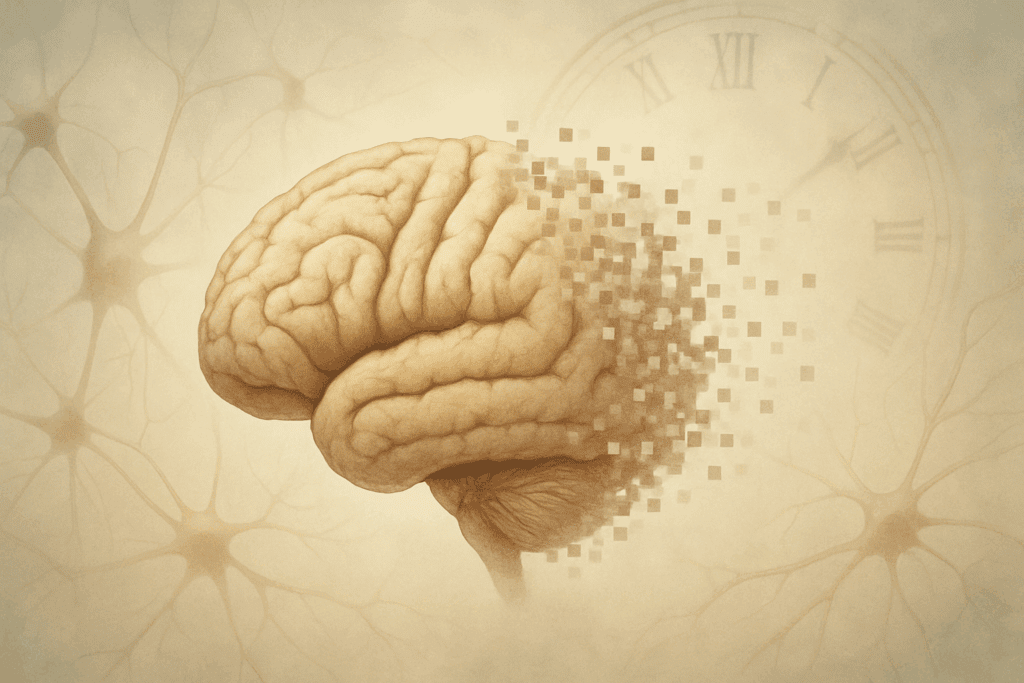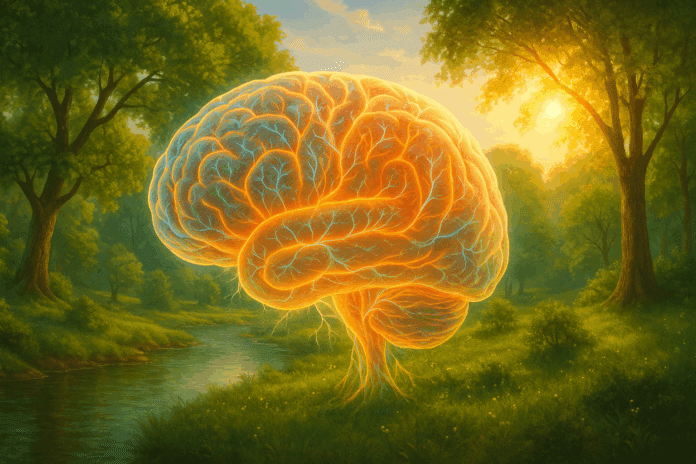The human brain, a marvel of biological architecture, orchestrates every thought, memory, movement, and mood we experience. Yet as we age, its resilience can falter, giving way to subtle lapses in memory or more pronounced cognitive decline. While aging is inevitable, the erosion of cognitive function doesn’t have to be. Advances in neuroscience and integrative medicine increasingly point to ways we can support brain health throughout life and potentially slow or even reverse cognitive deterioration. Understanding how to prevent cognitive decline is not only a personal wellness goal but a growing public health imperative.
Aging brings many changes, but cognitive decline is not a foregone conclusion. In fact, emerging evidence suggests that a combination of lifestyle interventions, dietary strategies, stress management, and cognitive engagement can make a substantial difference in preserving mental acuity. In this comprehensive guide, we explore what experts recommend for long-term brain health and mental wellness, with a focus on natural, evidence-based strategies.
You may also like: How to Prevent Dementia and Alzheimer’s Disease Naturally: Expert-Backed Strategies to Reduce Your Risk Through Lifestyle and Diet

Understanding Cognitive Decline: What Happens to the Brain Over Time
Cognitive decline encompasses a range of changes, from mild memory lapses to more severe impairments that interfere with daily life. These changes often begin subtly, with difficulties concentrating, recalling names, or following conversations. Over time, the progression may lead to mild cognitive impairment (MCI) or even neurodegenerative conditions like Alzheimer’s disease.
At the cellular level, cognitive decline is driven by complex interactions involving inflammation, oxidative stress, loss of synaptic connections, and impaired neuroplasticity. The brain’s ability to adapt, reorganize, and form new neural pathways—a capacity known as neuroplasticity—can become compromised, especially in the presence of chronic stress, poor nutrition, or sedentary behavior. Moreover, the hippocampus, a key region involved in memory and learning, tends to shrink with age, particularly in individuals with unmanaged cardiovascular risk factors or depression.
Understanding these mechanisms provides crucial insight into how to prevent cognitive decline by addressing root causes before symptoms escalate. Fortunately, the brain retains a remarkable capacity for regeneration and resilience when supported by the right conditions.

The Role of Diet in Preventing and Reversing Cognitive Decline
One of the most influential factors in brain health is diet. Research consistently shows that dietary patterns rich in antioxidants, polyphenols, healthy fats, vitamins, and minerals can enhance cognitive function and reduce the risk of neurodegeneration. The Mediterranean and MIND diets, for instance, are widely studied for their ability to promote long-term mental wellness.
Foods high in omega-3 fatty acids, such as fatty fish, walnuts, and flaxseeds, support synaptic integrity and reduce inflammation. Leafy greens, berries, and cruciferous vegetables are loaded with brain-protective compounds that help neutralize oxidative damage. Spices like turmeric, which contains curcumin, have also demonstrated neuroprotective properties.
Incorporating these foods regularly is a foundational step in learning how to prevent cognitive decline. Moreover, dietary patterns that regulate blood sugar levels, reduce processed foods, and promote gut health have been linked to improved brain function. The gut-brain axis, an emerging area of research, highlights the critical role of the microbiome in modulating mood, cognition, and neural inflammation.

Physical Activity and Its Impact on Brain Resilience
Exercise is not only beneficial for the body—it is one of the most potent natural tools for preserving cognitive function. Regular physical activity increases cerebral blood flow, enhances the delivery of oxygen and nutrients to brain tissues, and stimulates the production of brain-derived neurotrophic factor (BDNF), a protein essential for neuroplasticity and memory.
Aerobic exercise, in particular, has been shown to increase hippocampal volume and improve executive function. Resistance training also plays a critical role by improving insulin sensitivity and reducing systemic inflammation, both of which are linked to cognitive decline. Experts recommend at least 150 minutes of moderate-intensity aerobic activity per week, combined with strength training exercises twice weekly.
Incorporating movement into daily life—from brisk walking to dancing, gardening, or yoga—supports both mental and physical resilience. Understanding how to prevent cognitive decline often begins with committing to consistent, enjoyable physical activity that becomes a sustainable part of one’s lifestyle.

Sleep and Brain Health: Why Restorative Sleep Is Non-Negotiable
Sleep is not merely a passive state; it is an active process during which the brain clears metabolic waste, consolidates memories, and restores cognitive function. Chronic sleep deprivation is strongly linked to accelerated cognitive decline, impaired attention, and increased risk of dementia.
During deep sleep, the glymphatic system facilitates the clearance of beta-amyloid and tau proteins—hallmark indicators of Alzheimer’s disease. Disruption of this process due to insomnia, sleep apnea, or poor sleep hygiene can contribute to the accumulation of neurotoxic substances and diminish brain resilience over time.
Adults should aim for 7 to 9 hours of high-quality sleep per night, with regular sleep-wake cycles and minimal disruptions. Practical steps include reducing blue light exposure in the evening, avoiding caffeine late in the day, and creating a calm sleep environment. Those learning how to prevent cognitive decline should prioritize sleep as a fundamental pillar of brain health.
Cognitive Stimulation and Lifelong Learning
The brain thrives on novelty and challenge. Engaging in mentally stimulating activities—from reading and writing to puzzles, games, and learning new skills—strengthens neural pathways and supports cognitive reserve. Cognitive reserve refers to the brain’s ability to compensate for damage by using alternative networks, which can delay the onset of cognitive symptoms.
Lifelong learning promotes neuroplasticity and has been associated with lower rates of dementia. Activities that combine cognitive, social, and physical elements—such as playing a musical instrument, participating in community classes, or engaging in strategic games—are particularly beneficial.
Professionals emphasizing how to prevent cognitive decline often highlight the value of curiosity, adaptability, and sustained intellectual engagement. This is not limited to formal education; it can be cultivated through diverse and enriching experiences throughout life.

Stress, Mental Health, and the Brain: The Invisible Burden
Chronic stress and unresolved psychological distress exert a profound toll on brain health. Persistent elevations in cortisol, the primary stress hormone, can damage the hippocampus and impair memory, attention, and emotional regulation. Moreover, depression and anxiety are associated with structural and functional changes in brain regions involved in cognition.
Mind-body practices such as meditation, mindfulness, deep breathing, and tai chi offer effective ways to mitigate the impact of stress on the brain. These practices not only reduce cortisol levels but also enhance functional connectivity in the prefrontal cortex, the area responsible for decision-making and emotional control.
Understanding how to reverse cognitive decline may involve addressing psychological well-being as a foundational element. Seeking support from mental health professionals, cultivating resilience, and nurturing positive relationships are all essential steps in protecting the mind against the corrosive effects of chronic stress.

Social Connection and Emotional Engagement
Human beings are inherently social creatures, and social interaction plays a vital role in maintaining cognitive vitality. Isolation and loneliness have been identified as significant risk factors for cognitive decline, comparable in magnitude to physical inactivity or obesity.
Meaningful connections with friends, family, and community foster a sense of belonging and purpose, which are linked to better mental and emotional health. Shared conversations, laughter, and emotional support stimulate the brain in unique ways that promote resilience and reduce inflammation.
Volunteering, joining clubs, participating in group activities, or simply reaching out to loved ones can have a measurable impact on cognitive function. Social engagement becomes especially important in older adulthood, where opportunities for interaction may become more limited.
The Importance of Vascular Health in Cognitive Aging
Cardiovascular health and cognitive health are intricately connected. Conditions like hypertension, diabetes, and atherosclerosis compromise blood flow to the brain, accelerating neuronal damage and impairing memory. In fact, vascular dementia, the second most common form of dementia after Alzheimer’s, arises directly from impaired circulation to brain tissue.
Managing cardiovascular risk factors through diet, exercise, and medication when necessary is critical for long-term brain health. Monitoring blood pressure, lipid levels, and glucose control not only supports heart function but also provides a proactive approach to understanding how to prevent cognitive decline.
Emerging research suggests that endothelial dysfunction—a condition affecting the inner lining of blood vessels—may be a key early marker of cognitive impairment. Lifestyle interventions that promote vascular elasticity, such as nitrate-rich vegetables (like beets), flavonoids, and physical activity, show promise in supporting cognitive outcomes.
Nutritional Supplements and Cognitive Support
While food should always be the primary source of nutrients, certain supplements may provide additional support for brain health, especially when dietary intake is insufficient. Omega-3 fatty acids, B-complex vitamins, vitamin D, magnesium, and curcumin have been studied for their neuroprotective effects.
Vitamin B12 and folate are particularly important for reducing homocysteine, an amino acid linked to brain atrophy and cognitive impairment when elevated. Vitamin D, known for its role in immune and bone health, is increasingly recognized for its influence on brain development and function. Low levels of vitamin D have been associated with greater risk of cognitive decline.
Supplementation should always be approached under the guidance of a qualified healthcare provider to ensure efficacy and safety. In some cases, targeted supplementation can form part of a broader strategy for those looking into how to reverse cognitive decline, especially when paired with lifestyle and behavioral interventions.
Environmental Toxins and Cognitive Risk
Exposure to neurotoxic substances such as heavy metals (like lead and mercury), pesticides, and air pollution can contribute to cognitive deterioration. These toxins may accumulate in neural tissue, disrupt neurotransmitter function, and trigger oxidative stress and inflammation.
Reducing environmental exposure through clean eating, safe household practices, and advocacy for cleaner air and water is an often-overlooked aspect of cognitive prevention strategies. Using air purifiers, choosing organic produce, and minimizing the use of harsh chemicals can help reduce the burden on the brain.
Detoxification pathways in the liver and kidneys also play a role in clearing toxins, and their function can be supported through proper hydration, fiber-rich diets, and cruciferous vegetables like broccoli and Brussels sprouts. In understanding how to prevent cognitive decline, environmental health is a domain that warrants greater attention.
Technology, Screen Time, and Digital Overload
In the modern digital era, excessive screen time and constant connectivity can have unintended consequences for cognitive well-being. Continuous digital engagement has been linked to attention fragmentation, impaired memory formation, and diminished capacity for deep focus.
While technology offers numerous cognitive tools and resources, intentional use is essential. Establishing screen-free periods, engaging in tech-free hobbies, and practicing digital mindfulness can help recalibrate attention and improve cognitive clarity.
For younger generations, growing up in a digital environment presents both opportunities and risks. Teaching digital literacy and promoting balanced screen habits from an early age may become a crucial part of broader strategies to support lifelong brain health.
Integrative and Holistic Approaches to Brain Wellness
Integrative medicine offers a multidimensional approach to brain health, combining conventional science with holistic practices. Acupuncture, adaptogenic herbs, aromatherapy, and biofeedback are among the therapies explored for their cognitive and emotional benefits.
Herbs like ashwagandha, ginkgo biloba, and rhodiola have been traditionally used to enhance memory and stress resilience. While evidence varies, these interventions often support hormonal balance, mitochondrial health, and neurotransmitter regulation.
Holistic frameworks also emphasize the importance of purpose, creativity, and spiritual connection in maintaining mental wellness. These aspects of human experience, though difficult to quantify, often provide deep reservoirs of resilience that buffer against age-related decline. In learning how to reverse cognitive decline, such approaches offer complementary pathways that may be especially meaningful for individuals seeking personalized and integrative care.
Frequently Asked Questions: How to Prevent and Reverse Cognitive Decline
1. Can creative hobbies really help improve brain function and prevent cognitive decline?
Absolutely. Engaging in creative hobbies such as painting, writing, or crafting can stimulate multiple regions of the brain simultaneously, enhancing neural connectivity and emotional processing. These activities often involve decision-making, fine motor skills, and memory recall, which are crucial for sustaining cognitive flexibility. For those looking into how to prevent cognitive decline, cultivating creative outlets can provide both therapeutic and cognitive benefits, especially when pursued consistently. Studies have shown that creative engagement can even delay the onset of dementia symptoms by reinforcing cognitive reserves. This suggests that creative hobbies are more than leisure; they are strategic tools in the broader framework of cognitive wellness.
2. How important is hydration for cognitive performance and brain aging?
Hydration plays a surprisingly critical role in maintaining optimal brain function. Even mild dehydration can impair concentration, memory, and mood—effects that accumulate over time. Since the brain is about 75% water, adequate fluid intake supports cellular function, nutrient transport, and toxin elimination. Understanding how to prevent cognitive decline includes paying attention to hydration habits, especially in older adults who may have a diminished sense of thirst. Regularly consuming water-rich foods like cucumbers, oranges, and melons, alongside drinking fluids throughout the day, supports long-term mental clarity and reduces the likelihood of foggy thinking or memory lapses.
3. Are there any cognitive benefits to spending time in nature?
Yes, immersion in natural environments has been shown to reduce stress, improve working memory, and enhance creative problem-solving. Time in nature also supports the parasympathetic nervous system, which helps regulate the body’s stress response and lowers cortisol levels that can harm brain structures like the hippocampus. For individuals seeking strategies on how to reverse cognitive decline, “forest bathing” or even routine walks in green spaces may foster brain plasticity by promoting relaxation and sensory integration. Nature exposure has also been associated with better sleep quality, which further supports cognitive recovery and resilience.
4. What is the connection between financial planning and cognitive health in older adults?
Financial stress and uncertainty have been linked to elevated cortisol levels, which over time can negatively impact brain health. Conversely, having a well-structured financial plan contributes to emotional stability and reduces cognitive load, allowing the brain to allocate resources more efficiently. Older adults who regularly engage in financial literacy activities may also be exercising executive function, a key domain in preventing mental decline. Experts exploring how to prevent cognitive decline often encourage planning not only for finances but also for lifestyle adjustments that reduce future stressors. As such, cognitive wellness includes both mental stimulation and practical life preparation.
5. How do changes in hormone levels during aging affect cognition?
Hormonal shifts—particularly in estrogen, testosterone, and thyroid hormones—can significantly influence cognitive function. These hormones affect neurotransmitter activity, synaptic density, and even brain volume. For example, postmenopausal declines in estrogen have been associated with memory difficulties and increased Alzheimer’s risk. Addressing these changes through lifestyle interventions, medical treatment, or bioidentical hormone therapy may support efforts in how to reverse cognitive decline. It is essential, however, to consult healthcare professionals before initiating any hormonal strategies, as the benefits and risks vary widely between individuals.
6. Can brain-training apps replace real-world cognitive challenges?
While brain-training apps can provide short-term improvements in specific tasks, they often lack the depth and variability found in real-world cognitive experiences. Activities that involve social interaction, decision-making, emotional intelligence, and physical movement offer more comprehensive cognitive stimulation. For individuals learning how to prevent cognitive decline, digital tools can be supplementary, but they should not replace diverse mental and physical challenges. Research increasingly suggests that meaningful, goal-oriented tasks—like learning a language or teaching a skill—are more effective at building lasting cognitive resilience than repetitive gaming exercises.
7. Are there cultural or spiritual practices that support cognitive health?
Yes, many cultural and spiritual traditions offer practices that enhance mindfulness, reduce stress, and encourage social connection—all protective factors for the brain. For instance, traditional forms of meditation, chanting, and ritual can induce calm brain states and activate areas related to memory and empathy. These practices often include communal elements, which further support cognitive health through shared emotional experiences. As people explore how to prevent cognitive decline, integrating culturally meaningful activities can enhance both mental wellness and identity continuity, a factor shown to improve aging outcomes.
8. What role does gut health play in memory and decision-making?
Emerging science around the gut-brain axis reveals that gut microbiota influence the production of neurotransmitters like serotonin and dopamine, which are vital for mood regulation and cognitive function. Imbalances in gut bacteria have been linked to inflammation, depression, and even neurodegenerative diseases. Probiotic-rich foods and a high-fiber diet may enhance microbial diversity and, in turn, support clearer thinking and emotional stability. Understanding how to reverse cognitive decline increasingly involves investigating gut health as a modifiable and accessible intervention point. It is not just what we think but also what we digest that shapes brain health.
9. How can music therapy enhance cognitive performance in aging adults?
Music therapy engages multiple brain regions simultaneously, including those involved in emotion, memory, and movement. For aging adults, listening to or playing music can evoke autobiographical memories, enhance mood, and even improve verbal fluency. Structured music therapy has been shown to slow the progression of dementia and aid in restoring lost communication skills. For anyone researching how to reverse cognitive decline, incorporating rhythm, melody, and musical expression into daily routines may offer significant cognitive and emotional gains. Personalized music playlists based on an individual’s history can be especially powerful in evoking positive neural responses.
10. Are there promising future developments in the field of cognitive decline prevention?
Absolutely. Advances in neurotechnology, such as transcranial magnetic stimulation and personalized nootropic therapies, are showing promise in improving cognitive function. Researchers are also exploring epigenetic approaches that may help modify gene expression related to neurodegenerative risk. Artificial intelligence is being leveraged to create predictive models that identify early markers of cognitive decline, allowing for more precise interventions. As we deepen our understanding of how to prevent cognitive decline, interdisciplinary collaboration between neuroscience, data science, and integrative medicine is creating more nuanced and individualized care strategies. The future of cognitive health is shifting toward personalization, prevention, and proactive support.
Final Thoughts: Building a Lifelong Strategy for Cognitive Health
Preserving cognitive function is not about waiting for problems to arise; it is about cultivating daily habits that build resilience and adaptability over time. Understanding how to prevent cognitive decline begins with recognizing the brain as a dynamic, ever-changing organ shaped by every choice we make. From nourishing food to restorative sleep, intellectual engagement to emotional connection, each facet of daily life contributes to our cognitive trajectory.
While there is no singular remedy or guaranteed method for how to reverse cognitive decline, the convergence of scientific research and real-world experience underscores a hopeful message: proactive, personalized, and holistic strategies can support the brain’s vitality across the lifespan. Rather than viewing cognitive aging with fear or resignation, we can approach it with informed optimism and empowered action.
As we move forward into an era where mental longevity is just as prized as physical health, the insights shared here serve as a roadmap for those seeking to invest in their mental future. Brain health is not a fixed outcome but a lifelong journey—and every choice matters.
Further Reading:
Cognitive Health and Older Adults


